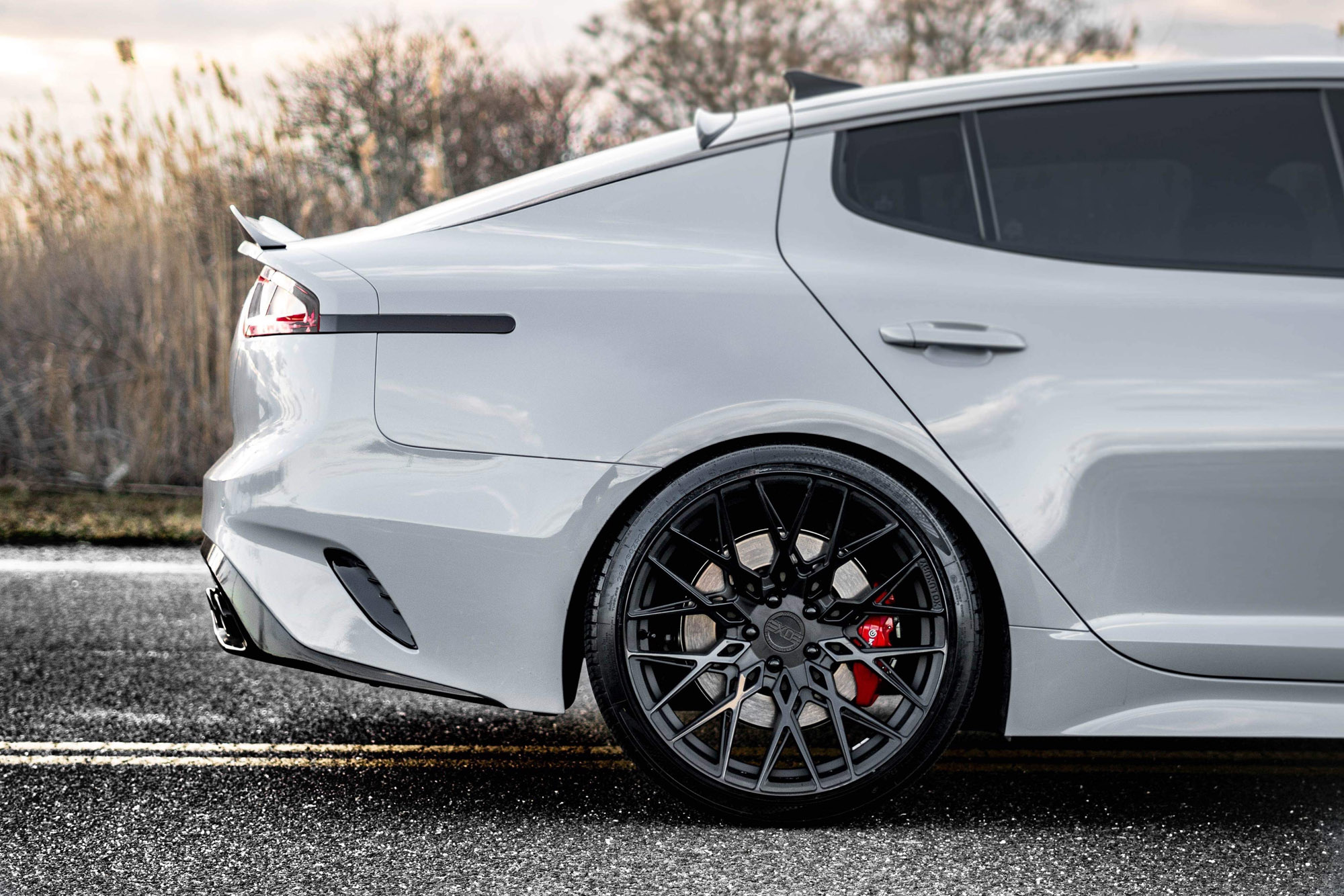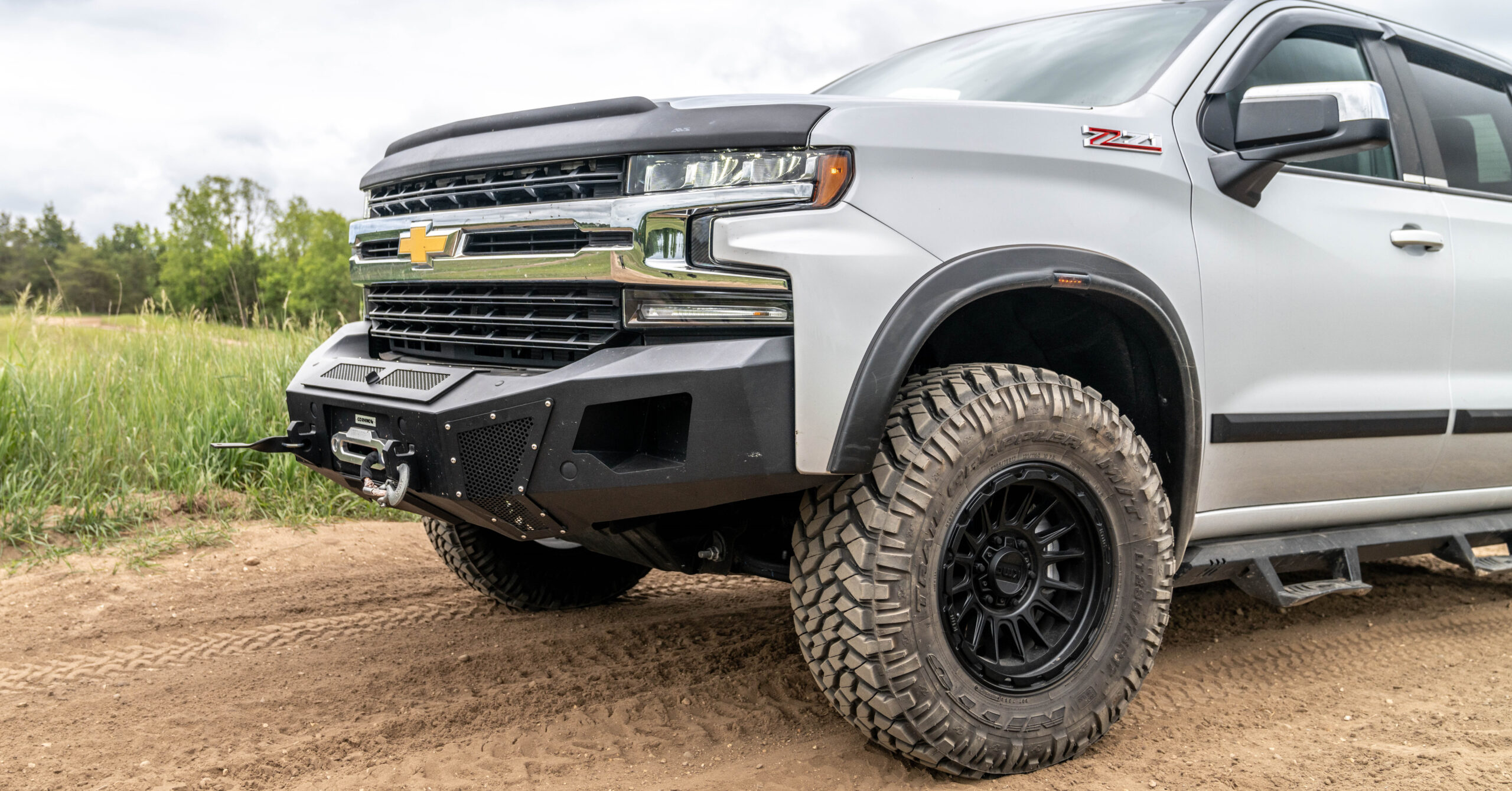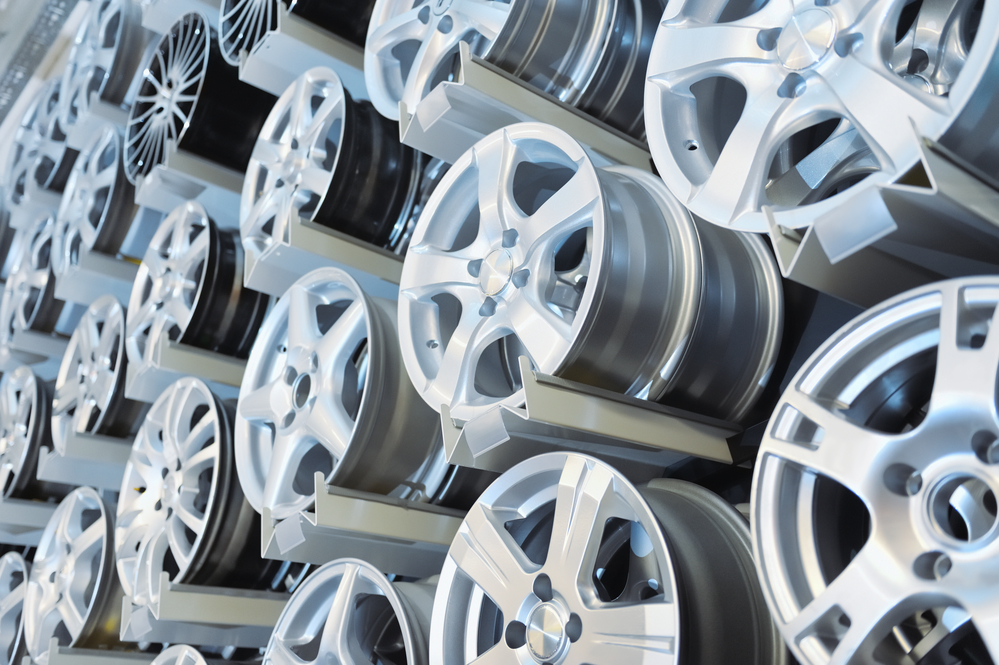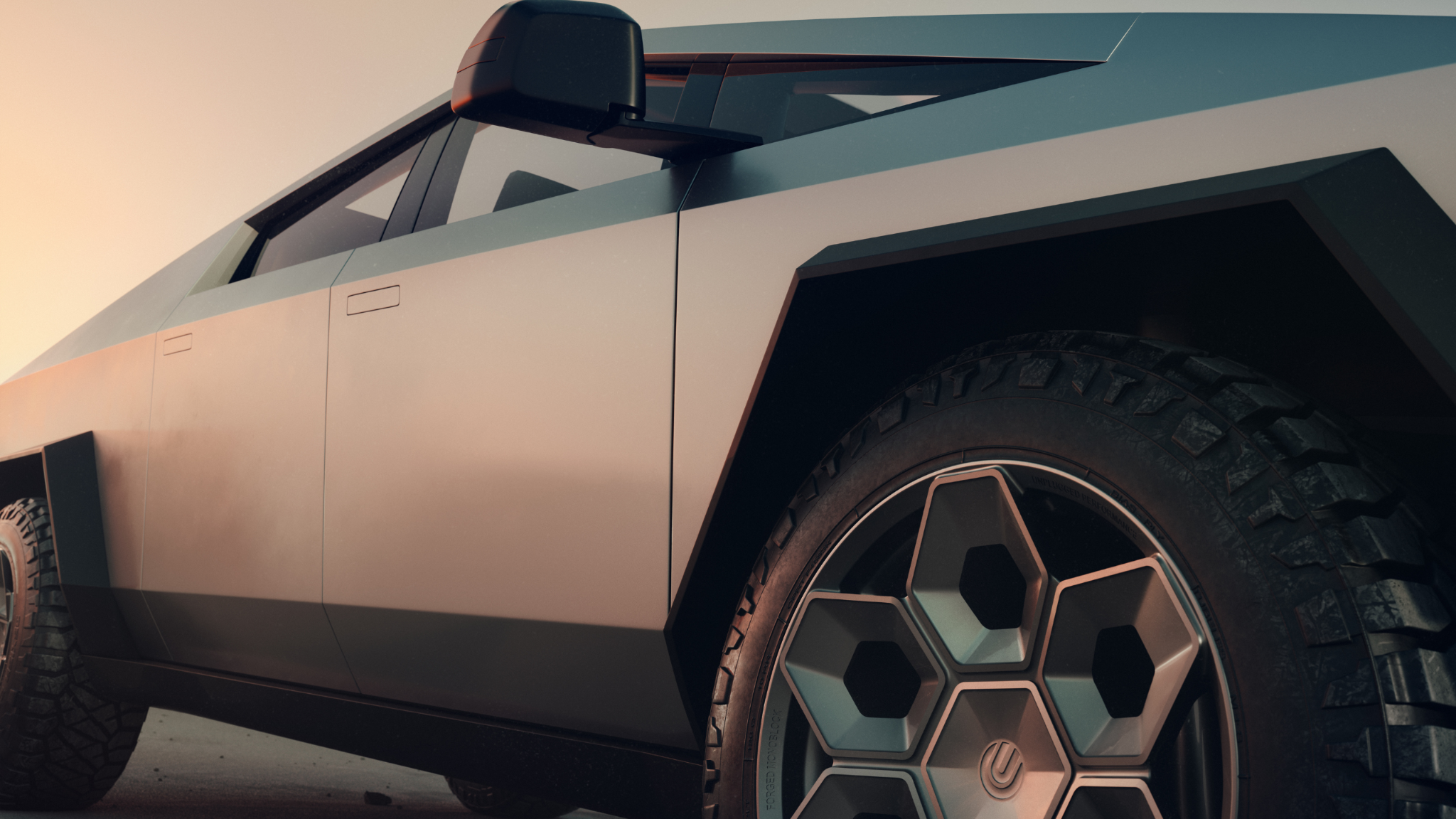It’s no secret that good-looking wheels catch the eyes. Certainly, it is aesthetically pleasing to watch a vehicle with astonishing wheels drive by, but contrary to what some people believe, these parts of your vehicle have more significance than just a catchy design.
Different types of wheels have a noticeable effect on fuel consumption. Also, depending on the material, they will have different durability and vulnerability potential. Choosing the right type of wheels will improve your driving experience and maneuverability, which is important because a driver has to be constantly in the control of his vehicle.
What Materials Do Manufacturers Use for Wheels?
Good old steel
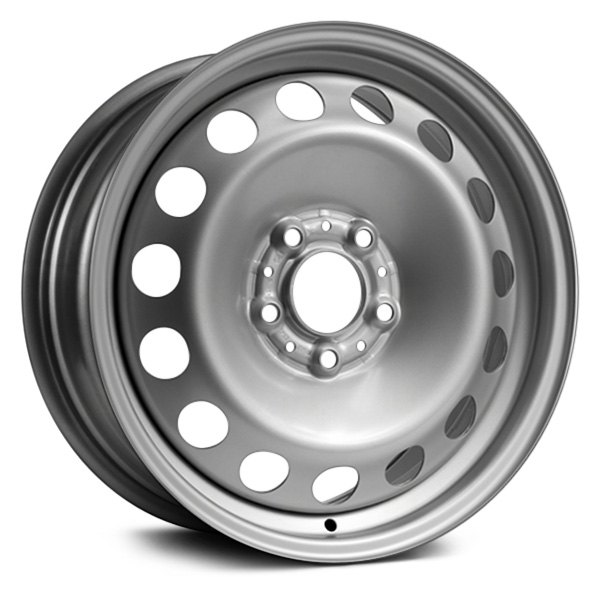
This is the most cheap and common type since they are widely used by most mid-range car manufacturers.
Steel wheels are created when sheets of metal pieces are pressed and then welded together securely. This process excludes variability in designes and puts such wheels in the category of cheapest and crudest. Usually, hubcaps are installed on the wheel rims to cover up the cheap look.
Durability is the main trait of steel wheels, but because of the material, they are also pretty heavy and don’t look appealing. They can be called ordinary wheels, because when you buy a new car, most likely you’ll get steel wheels installed by default.
Alloy wheels with aluminum
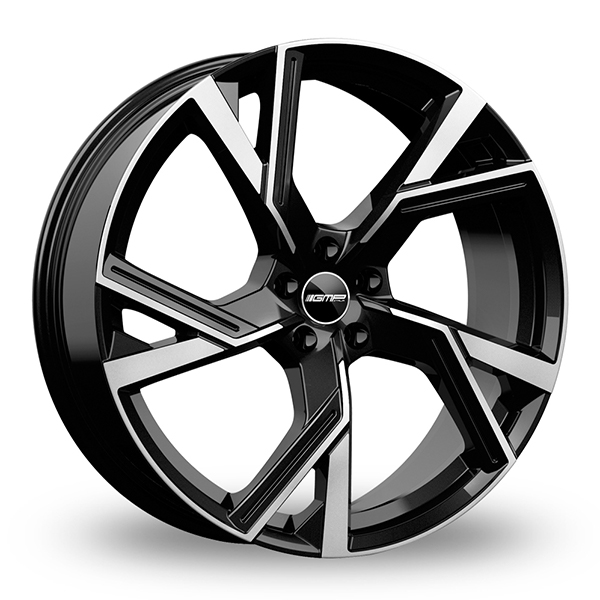
Alloy wheels use different metals for more advantages than just plain steel, but the most common material is aluminum. Alloy wheels are always lighter than steel wheels, they are better for driving performance, like speeding up and breaking. Wheels of this type also look much better, because they may be designed with intricate patterns, so they don’t require hubcaps.
Carbon Fiber to look elite
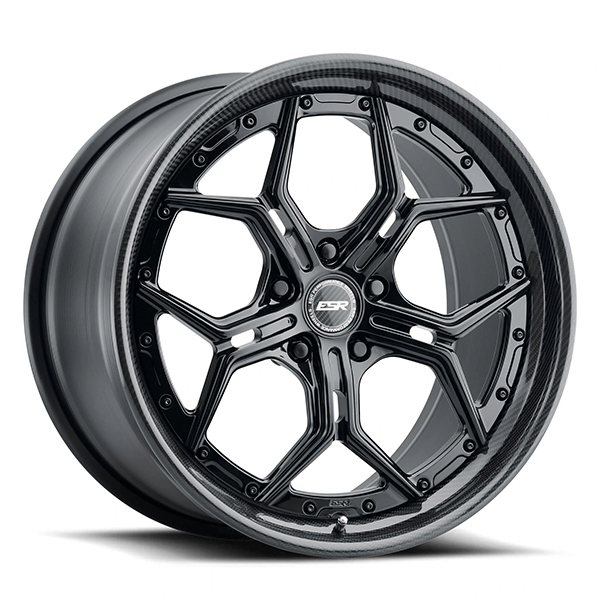
Carbon Fiber Wheels belong to the most expensive type due to being hand-made, and they are usually installed in luxury vehicles. They are light, beautiful, and durable. But at the same time, if somehow they get damaged, such wheels cannot be repaired, as compared with Alloy or the ones made from Steel.
Let’s Learn How Alloy Wheels are Created
Today alloy wheels are created in three time-honored ways.
– They can be manufactured using a melting process, which is common in factories that produce Cast Wheels.
– They can be forged, which is the most expensive wheel creation process.
– They can also be flow formed, which is an offshoot of Cast Wheels design.
These three types of wheels have their strong sides as well as vulnerabilities, but most importantly, all alloy wheels can increase your fuel economy. So let’s analyze and get a general idea about the differences between each product.
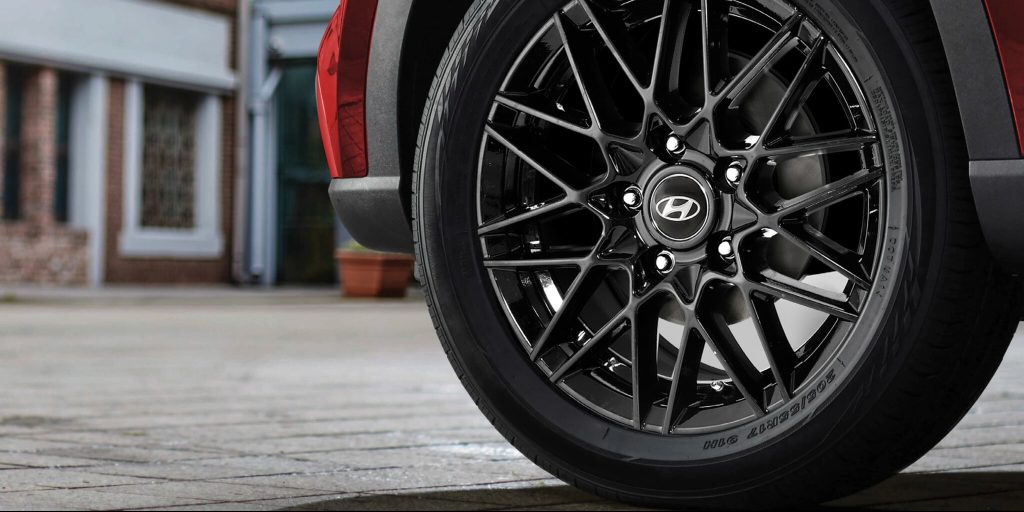
Qualities of Cast Wheels
The most frequent and popular process of manufacturing alloy wheels is casting them with aluminum. The process is relatively easy and fast for any vehicle factory to proceed with, hence the price for cast wheels is reasonable. These wheels are created by melting aluminum and pouring it into a special mold that will create the required wheel shape. Then the product is processed by machining, drilling, and trimming until the product is complete.
The main weakness of a cast wheel is the porosity. It means that the wheel’s structure is inconsistent, and has a higher chance of getting fractures. Some manufacturers try to use more material in order to increase the product’s strength, but at the same time, it increases the weight.
The main advantage of these types of wheels is an affordable price. The price for them is slightly higher than for the steel wheels, but cheaper than for the flow formed or forged. Although it comes with a greater risk of breakages and cracks, which in turn leads to an increased risk of malfunction for other parts in your vehicle, like tires and suspension system. Or what is worse, an unexpected wheel breakage can cause a car accident.
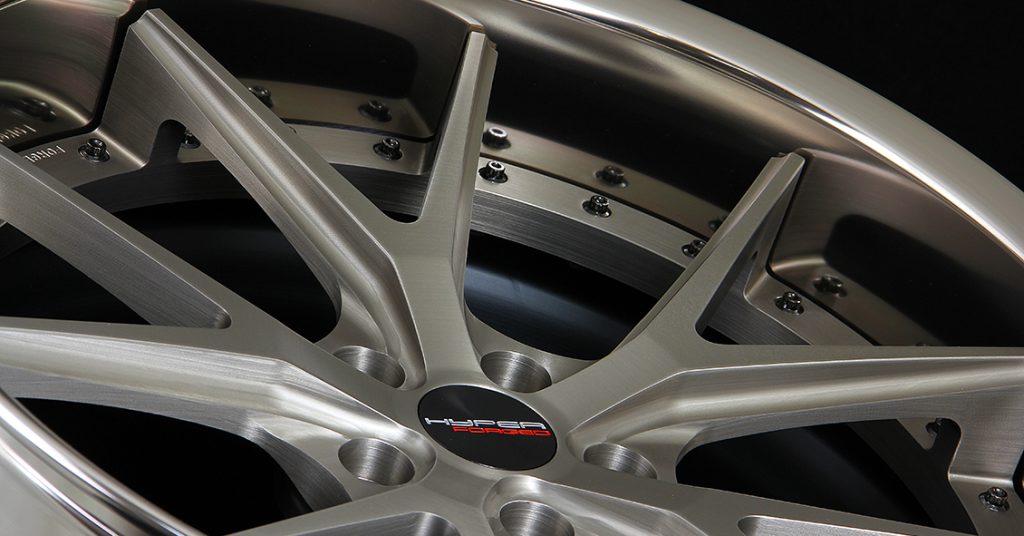
Flow Formed: Next Level of Cast Wheels
The wheels manufactured using this process are sometimes referred to as Flow Forged but do not be misled by the advertisements, since Flow Forming is basically the same process of melting and casting. The only difference is that manufacturers use less material on the barrel part of the wheel, making it narrow in the beginning. Once the cast is done, it is put on the special machine that heats and spins the wheel, widening it to the required form.
The main advantages are increased durability in the barrel part of the wheel and less weight of the wheel itself. Using such lightweight products increases handling efficiency. Your car will brake and accelerate faster.
But at the same time, these wheels are still very vulnerable to breakages, because only the barrel is enhanced, while the central part is still manufactured using just the casting process.
Forged Wheels: Strong but Expensive
Wheels manufactured using the process of forging are constantly in the high prices category on the market. It is hardly surprising, considering the quality and quantity of the material used for each set of wheels. They are made by forging, shaping, and pressuring a solid piece of metal.
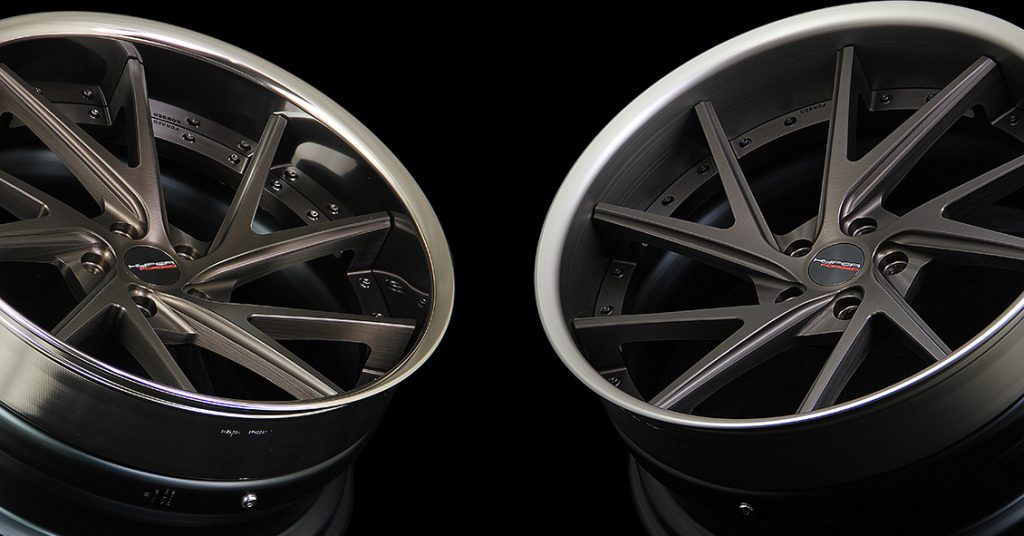
The main advantage of the forged wheels is their durability. They will not get cracks, even if there was an accident involved. Instead, a forged wheel that is going to be affected by some kind of strike or accident, will just bend. This way, drivers have a higher chance to keep control of their vehicles.
The durability, created by the high-end manufacturing process, is the reason why these wheels are so expensive, but this is no disadvantage, it’s just a matter of choice for each driver.
Multi-piece wheels: Not so popular, but with a trademark
Multi-piece is quite literally a type of wheel that is constructed from different parts which get bolted together and sealed airtight. Usually, there are two or three pieces that are manufactured using the forging process.
Multi-piece wheels are much more expensive than all the other types we’ve learned, but in return, the owner has to pay less for repairs, since each piece individually can be changed, repaired, and even customized. Manufacturers of multi-piece wheels can offer different widths and designs.
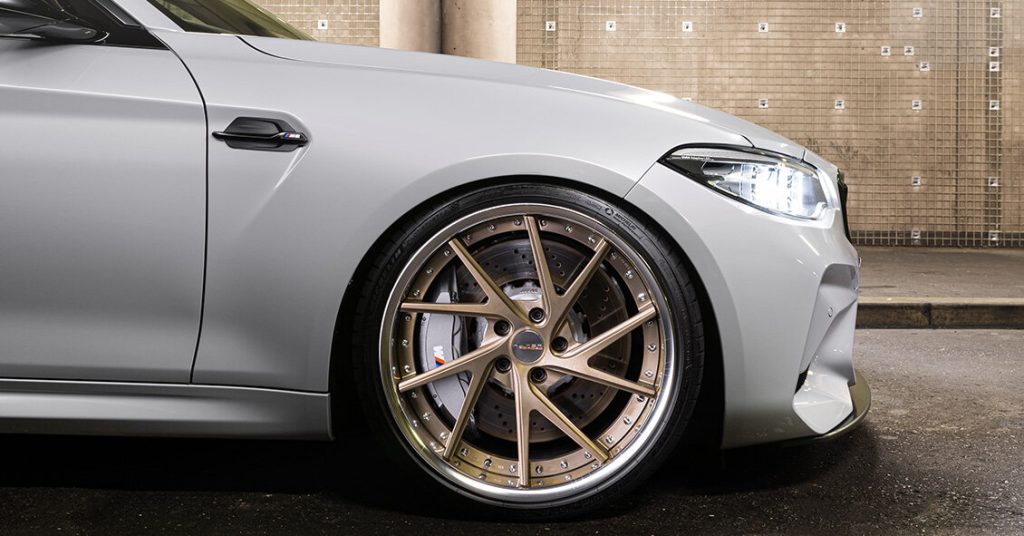
How Do I Choose the Right Type of Wheels?
When deciding what type of wheels you want to install on your vehicle, you should take into consideration four main points: purpose, compatibility, design, and price.
– Understanding the purpose of different wheels is significant when you make a choice. Some wheels are great for winter seasons, some are the ideal option for racers, while others are designed to be affordable.
– Compatibility is important because some types of wheels cannot be installed on certain vehicles. You should learn what wheels are compatible with your car before actually purchasing and installing them.
– Design is a good addition for your own pleasure. Having a vehicle that you love looking at is always a good decision.
– Price is something we sometimes don’t have a choice at. Getting to know the market and different manufacturers is important to find the right balance between the price and quality of the product.
Here’s a comprehensible list of different types of tires to quickly get an idea of what you need.
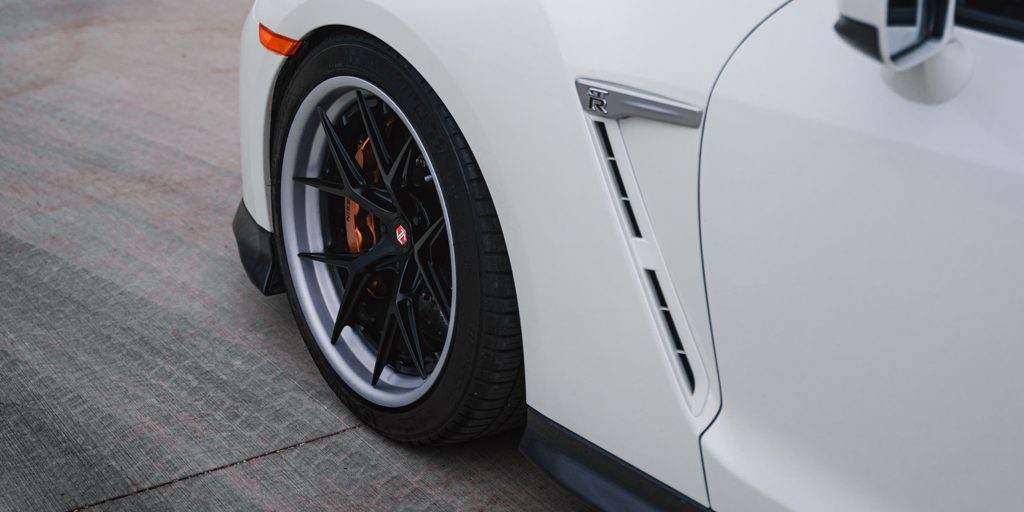
Steel wheels: cheap but heavy, don’t look good but can be repaired easily. A great choice for heavy vehicles, or vehicles that have to go through a hard duty. A driver should choose this type of car wheels if he looks for performance and stability. Police, fire department, and hospital vehicles all use steel wheels because they aren’t easy to break.
Steel wheels with snow tires are a good combination for winter seasons and environments, where you’ll have to move on the slippery road. Due to the weight of such wheels, you’ll get better traction on the harsh road, and snow tires are a necessity for ice and snow on the road.
Cast wheels: good-looking, more expensive than steel wheels, but still not as expensive as forged wheels. They can be easily fractured on harsh terrains, and they have a higher risk of total wheel breakage, but they can be repaired. They don’t weigh much, your vehicle will speed up faster and brake more easily.
Flow formed: they are level above cast wheels, less risk of fractures.
Forged wheels: amazing durability but higher price. Good choice for racers, off-road vehicles, and driving on harsh terrains, even though these wheels still don’t weigh as much as those created from steel.
Multi-piece wheels: high investment, less waste on repairs. Good choice for people who like to customize their vehicles, since you can easily paint, change and repair different parts in such wheels.
What Finish Do I Choose for Wheels?
The finish is essential to protect the bare surfaces of any type of wheels and improve the overall design. Today, you can find any finish your heart desires, but it is important to understand that they are different in terms of properties and required care.
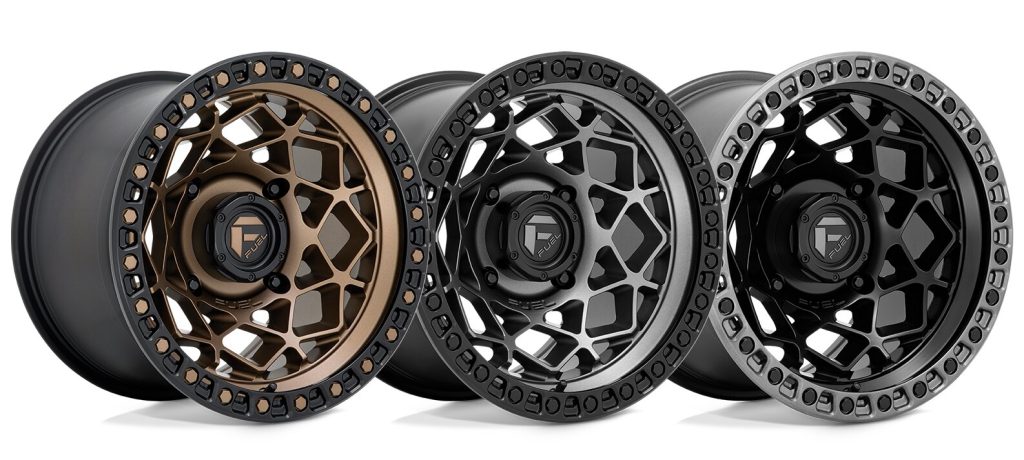
The chrome finish is the classical choice of design, especially high-quality reflective platings. The downside is that wheels with chrome finish are highly vulnerable to corrosion, so they require frequent care. The best decision to keep chrome finish well-maintained would be to clean the wheels every month and use a wheel protectant.
Powder coating is a good choice when you look for a durable finish. It can provide you with good choices of colors. This type of finish also requires frequent cleaning, but make sure to never use acidic wheel-cleaners.
Clear coating is ideal for drivers who prefer a classical, minimalistic, stern look. Clear coating is a good choice if you want to put a paint layer, and is also convenient because you can touch up the clear coat by yourself when needed.
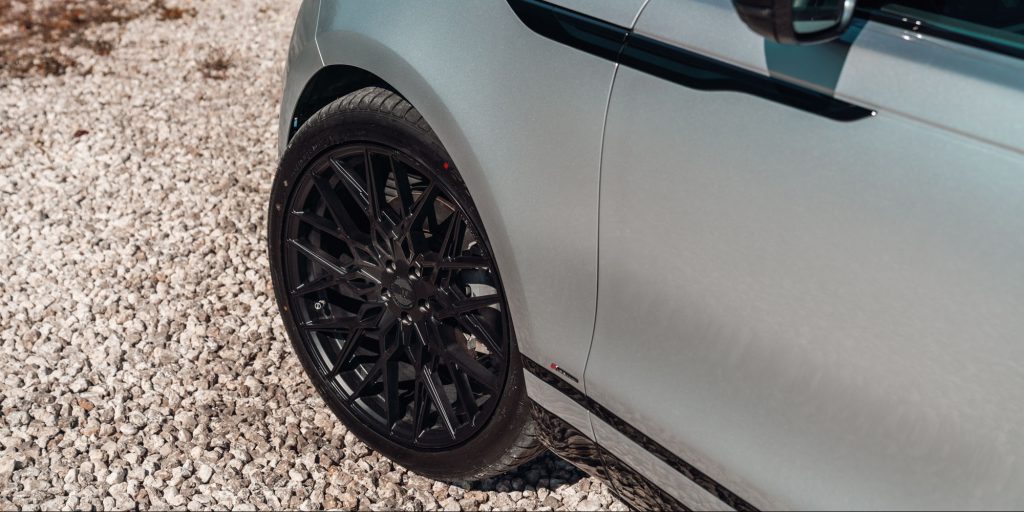
Wheels Connect You with the Road
This is why it’s important to learn everything you can about your vehicle, and the wheels it requires, before purchasing and installing them. Consider everything you’ve learned from this article before making a decision.
How much money are you willing to spend on your wheels? Check the market, and discover different wheel companies, they all offer customers different services, products, and prices.
What is the main purpose of your vehicle? Is it for day-to-day driving, or is it for heavy work? Is your vehicle creating your image and reputation, does it need a stylish look?
Answer these questions and finding the right choice between all these wheel products will not be a problem for you.
